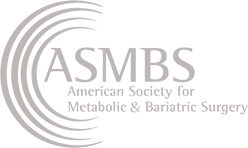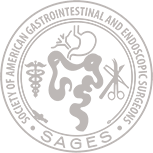Acid reflux affects many people. However, those who have undergone a sleeve gastrectomy (gastric sleeve) may be impacted more. Approximately 35% of gastric sleeve patients may experience new or worsened reflux.
Acid Reflux or Gastroesophageal reflux disease (GERD) is a common cause of upper abdominal discomfort, indigestion and heartburn. Normally, a flap valve at the bottom of the esophagus (food pipe), called the lower esophageal sphincter (LES), closes after swallowing to prevent backup of caustic stomach contents into the esophagus. GERD is caused by an incompetent LES that allows acid and sometimes bile to flow back into the esophagus, resulting in burning (heartburn) and/or inflammation (reflux esophagitis). Obesity is associated with elevated intra-abdominal pressure and can cause GERD and several patients with obesity have compromised LES.
What is the connection between a gastric sleeve and acid reflux? Put simply, reflux is caused when stomach acid and sometimes bile is displaced into the esophagus. With a gastric sleeve procedure, the stomach is made smaller and has a much less capacity to stretch, which is what induces satiety with smaller quantities of food. This also results in increased pressure within the small stomach. Additionally sleeve gastrectomy can affect the LES, both of which predispose patients to GERD.
GERD may lead to esophageal ulcers or strictures as well as a condition known as Barrett’s esophagus, increasing the risk of esophageal cancer. In addition to these health complications, GERD can negatively impact a person’s physical and social activities.
ACID REFLUX PREVENTION AND TREATMENT
New methods of fixing acid reflux after a gastric sleeve are being developed. One example is a novel minimally invasive procedure known Ligamentum Teres Cardiopexy (LTC) or the Sling Surgery which we at the Center for Weight Loss Surgery have been using to reinforce the LES. The other is the LINX reflux management system. For patients who qualify, this approach involves wrapping a titanium-beaded bracelet around the lower esophageal sphincter to stop acid from refluxing into the esophagus.
Symptom relief can also be found through other forms of medical intervention. Most post-surgery GERD symptoms are treatable with medication, such as antacids, proton pump inhibitors and H2 receptor blockers. These may be available over the counter or through prescription.
If symptoms do not improve, GERD could be due to bile (as opposed to acid) refluxing into the esophagus which can be addressed by diverting the bile from the stomach by redirecting the bile further down using a Duodenal Switch surgery, which can also help address residual obesity that has not be controlled with the Sleeve Gastrectomy.
Sometimes, conversion of the gastric sleeve to a gastric bypass may be needed. The gastric bypass surgery depressurizes the stomach remnant which can improve the symptoms of GERD in people who previously had gastric sleeve surgery.
RELIEVE SYMPTOMS BY AMENDING LIFESTYLE CHOICES
Alleviating or fixing acid reflux after a gastric sleeve procedure could also be achieved through lifestyle changes. Patients can take steps to avoid discomfort by reducing risk factors and triggers. The foremost course of action is to continue to reduce weight. GERD and the symptoms associated with acid reflux are much less likely to persist in individuals with a normal BMI range.
To address GERD or acid reflux, it’s also recommended to:
- Stop smoking.
- Eat a healthy diet.
- Refrain from eating late at night.
- Reduce consumption of fatty or fried foods.
- Limit alcohol and coffee intake.
- Exercise regularly.
- Obtain prescription medication to manage chronic symptoms.
ACTING IS ESSENTIAL TO PROTECT THE ESOPHAGEAL LINING
Not everyone experiences acid reflux after getting gastric sleeve surgery. That being said, those who do develop a chronic problem are at a higher risk for more serious health problems, like esophageal cancer. As such, it’s vital to address the symptoms and protect the esophageal lining as best as possible.
If you’re considering WEIGHT LOSS SURGERY, speak with your doctor about the gastric sleeve and acid reflux or any other concerns. At the Center for Weight Loss Surgery, we offer several bariatric weight loss surgery options to fit your needs and health concerns.




